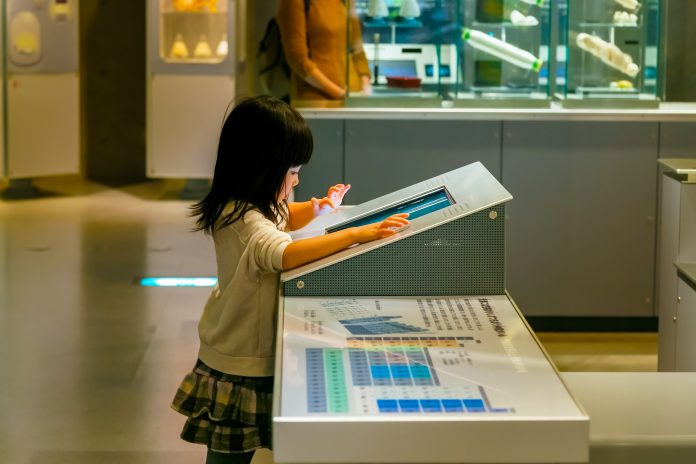Open Access Government charts the science and technology policy priorities in Japan, including the areas MEXT Minister HAGIUDA Koichi has been pushing forward
According to the Ministry of Education, Culture, Sports, Science and Technology (MEXT) in Japan, the science and technology policy there is looked after comprehensively per the Science and Technology Basic Plan, determined every five years based on “The Science and Technology Basic Law”. The Basic Plan defines six key aims to be achieved with the Country’s Science and Technology (S&T) policy, fitting in with the dual guidelines of “S&T to be supported by the public, returning benefits to society” and “emphasis on fostering human resources and competitive research environments shift of emphasis from ‘hard’ to ‘soft’ resources; greater significance of individuals at institutions.”
Also, to realise the aforementioned goals, efforts are made to “enhance basic research while developing human resources and focusing on individual fields,” according to the MEXT website.(1) Heading up the ministerial team at MEXT (2) is HAGIUDA Koichi, Minister of Education, Culture, Sports, Science and Technology, born in August 1963, Tokyo. Today, he is a Member of the House of Representatives (Tokyo 24th Electoral District) and commenced his current role in September 2020. As well as being Minister of Education, Culture, Sports, Science and Technology, he is also Minister in charge of Education Rebuilding (3) (part of the SUGA Cabinet). (4)
Research policy developments in Japan
During August 2021, Minister HAGIUDA Koichi took part in the G20 Research Ministers’ Meeting chaired in Trieste, Italy. Here, the impact of the COVID-19 pandemic on pushing forward digital transformation for research and higher education were discussed. The Minister provided comment on several areas, including hybrid education that combines online education and schooling plus achievements made in remote and smart systems used at research facilities in Japan. The Minister also discussed the university fund of around a trillion yen, to realise nothing less than world-class research. (5)
In other news, we discover that MEXT works on the EDU-Port Japan Project, which seeks to share Japanese- style educational techniques with those in other parts of the world. With approximately 79,000 people in 36 countries and regions taking part, MEXT explained their delight at the EDU-Port Japan Project. “We are pleased to announce that a formal decision has been made on this year’s research projects and supported projects. It is our hope that, through these projects, we will be able to build even stronger relations of trust and cooperation with other countries, and moreover, will be able to contribute to the international education environment,” MEXT said. (6)
In June 2021, Minister HAGIUDA underlined the importance of Education for Sustainable Development (ESD) and sought international collaboration in this area. The Minister also detailed Japan’s endeavours concerning digital technology in schools, like new forms of learning enabled with every child equipped with an electronic device. Having said that, in-person education remains important and cannot be entirely replaced with distance learning, Minister HAGIUDA affirms. (7)
In May 2021, Minister HAGIUDA signed a Memorandum of Cooperation (MOC) on education, science, technology and innovation with Lilja Dögg Alfreðsdóttir, Minister of Education, Science and Culture of Iceland and others. Certainly, collaborative activities in science, technology, education and innovation are very much encouraged, such as promoting joint research when it comes to areas of common interest.
Following the signing, Minister HAGIUDA explained his joy in signing the MOC with Minister Alfreðsdóttir, commenting that, “We would like to strengthen the collaboration between Japan and Iceland and accelerate the promotion of our cooperation based on the MOC we have signed.” Minister Alfreðsdóttir thanked all the people concerned in the arrangements and negotiations, saying, “The MOC specifies that Arctic science and marine research are areas of particular common interest, and we would like to further cooperate in these areas in the future. We expect cooperation and exchanges between the various relevant institutions from Japan and Iceland.” Ministers HAGIUDA and Alfreðsdóttir agreed to strengthen and carry on the collaborative relations between Japan and Iceland. (8)
Closing remarks on science and technology
The examples discussed in this article clearly demonstrate the value that MEXT places on science and technology to benefit society, not only in Japan, but in other countries too. World-class university research, international cooperation, in-person education as well as distance learning are some of the areas we have discussed that are within the remit of Minister HAGIUDA at MEXT.
References
- (1) https://www.mext.go.jp/en/policy/science_technology/overview/index.htm
- (2) mext.go.jp/en/about/member/index.htm
- (3) https://www.mext.go.jp/en/about/member/title01/detail01/1375567.htm
- (4) https://japan.kantei.go.jp/99_suga/meibo/daijin/suga_e.html
- (5) https://www.mext.go.jp/en/news/topics/detail/mext_00072.html
- (6) https://www.mext.go.jp/en/news/topics/detail/mext_00063.html
- (7) https://www.mext.go.jp/en/news/topics/detail/mext_00068.html
- (8) https://www.mext.go.jp/en/news/topics/detail/mext_00052.html











